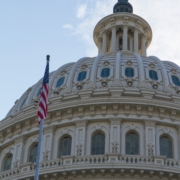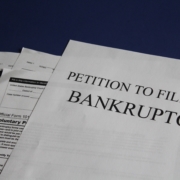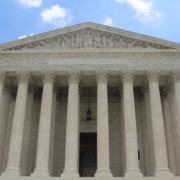Bid Protests and Damages Availability
You’re a seasoned litigator and an aggrieved, hardworking contractor comes into your office (or your Zoom room). His recent proposal to the City, which was prepared with painstaking detail and offered the lowest bearable price, was rejected—unfairly, the contractor says. Instead, the City awarded the contract to the contractor’s bitter rival, Dewey/Cheatham, who appears to have a cozy relationship with the City manager. The contractor got second place.
After poring through the evaluation, it’s clear to you that the award process was far from fair, if not downright biased toward Dewey/Cheatem. Your potential client is incensed—the contractor wants to file a lawsuit to give those so-and-sos down at City hall a piece of his mind—and to recover the profits he anticipated receiving under the contract. He asks you: can he recover lost profits damages in bid protest litigation?
You respond in typical, equivocal fashion: probably not. But also maybe.
A disappointed bidder who responded to either a request for proposals or an invitation for bids is not in a contractual relationship with the government entity requesting bids or proposals, which rules that claim out as a basis for recovering lost profit damages. Moreover, because bid documents always allow for the government entity to reject all bids, tort claims, such as fraud, are also ruled out. The case law in California has recognized this quirk, instead sanctioning claims by disappointed bidders on promissory estoppel theories—but only allowing damages for the costs of preparing the bid or proposal. See Kaijima/Ray Wilson v. Los Angeles County Metro. Trans. Auth., 23 Cal. 4th 305, 314 (2000) (“Because the MTA was authorized to reject all bids, Kajima did not know at this point whether the contract would ever be awarded. Nor, because of the secrecy of the bidding process, did Kajima know whether it was indeed the lowest responsible bidder. Therefore . . . bid preparation costs, not lost profits, were the only costs reasonably incurred.”); Eel River Disposal & Resource Recovery, Inc. v. Cnty. of Humboldt, 221 Cal. App. 4th 209, 240 n.12 (2013) (“[A] bidder deprived of a public contract, by the wrongful misaward of that contract, has neither a tort nor a breach of contract action against the public agency.”).
Although Kajima and its progeny have spoken fairly authoritatively on this issue, there remains a glimmer of hope for disappointed bidders that is yet to be conclusively addressed in California courts: whether the presence of bad faith on the part of the government entity entitles a disappointed bidder to recover lost profits damages. The court in Kajima held that lost profit damages were not allowed in the case at bar, noting that it was a “distinctly minority position” to allow lost profits as damages, and that the courts that had done so awarded those damages where bad faith was shown on the part of the government entity. Kajima, 23 Cal.4th at 320. The daylight in Kajima is that while the court in that case said that lost profits were not available to the plaintiff (who had not shown or alleged bad faith), it did not affirmatively say that lost profits damages would not be reachable if bad faith had been shown by the plaintiff. See id. In other words, Kajima was taking the broader position that, generally speaking, lost profits damages are not available to a disappointed bidder under a promissory estoppel theory. It did not speak to the more specific issue of whether lost profits damages are available when bad faith can be demonstrated.
Nonetheless, while the California Supreme Court did not foreclose this possibility completely, the branding of that strand of persuasive authority as “a distinctly minority position” would seem not to bode well for disappointed bidders bringing those arguments in the future. However, the case can be made that although the court in Kajima pointed out that the policy of competitive bidding statutes is to protect the public rather than the expectations of a disappointed bidder, awarding damages to a disappointed bidder who is a victim of bad faith actions by a government entity, which in turn damages the public by potentially awarding the public contract to a more expensive or less qualified contractor, could serve those same public policies by deterring government chicanery and cronyism. See id. at 318-20.
The availability of lost profits damages for disappointed bidders will likely remain a desolate frontier until an optimistic litigant tries to wedge itself into the crevice left by Kajima’s dicta regarding bad faith. In the meantime, disappointed bidders will have to content themselves with bid preparation costs as their only remuneration for unjustly unsuccessful bids.











